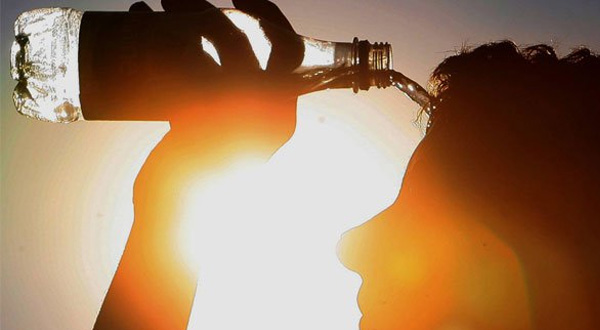KARACHI: Karachiites should brace for yet another heatwave from Tuesday, which will engulf the metropolis for three days as temperatures soar above 40°C again.
The maximum temperature may soar up to 45°C today, and it will continue to hover around 41-45°C during the next two days, the Pakistan Meteorological Department has warned.
The latest bout of the heat is attributed to a halt in the sea breeze, which is likely to remain cut off till Thursday.
The city faced an extended heatwave earlier this month, as the mercury routinely touched 44°C for four to five days. The scorching weather forced the Board of Intermediate Education Karachi to postpone the examinations last week.
In the face of the latest heatwave, the board has now changed the timings of examinations from May 29 to June 13. Exams for Arts Group (Regular and Private) will now start at 8:30am.
What is a heat stroke?
Heat stroke results from prolonged exposure to high temperatures — usually in combination with dehydration — which leads to failure of the body’s temperature control system.
If you or someone you know faces any of these symptoms, take immediate action to prevent complications.
– High temperature but without sweating
– Throbbing headache
– Dizziness and light-headedness
– Lack of sweating despite the heat
– Red, hot, and dry skin
– Muscle weakness or cramps
– Nausea and vomiting
– Rapid heartbeat, which may be either strong or weak
– Rapid, shallow breathing
– Behavioural changes such as confusion, disorientation, or staggering
– Seizures
– Unconsciousness
How to prevent a heat stroke?
Stay covered
Try to stay indoors, and if you need to be outside don’t spend extended amounts of time without shade. Keep your skin covered against the sun.
Wear light clothes
Wear linen, cotton, silk, or other breathable fabrics. Keep your clothing loose and breezy, so you don’t feel suffocated in the humid heat.
Find shade
Look for a shade, find a tree.
Stay hydrated
Drinking more water is recommended.





